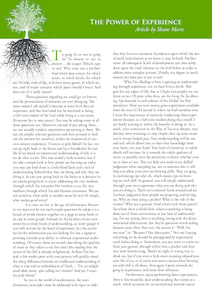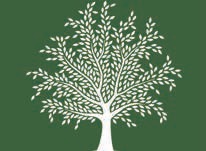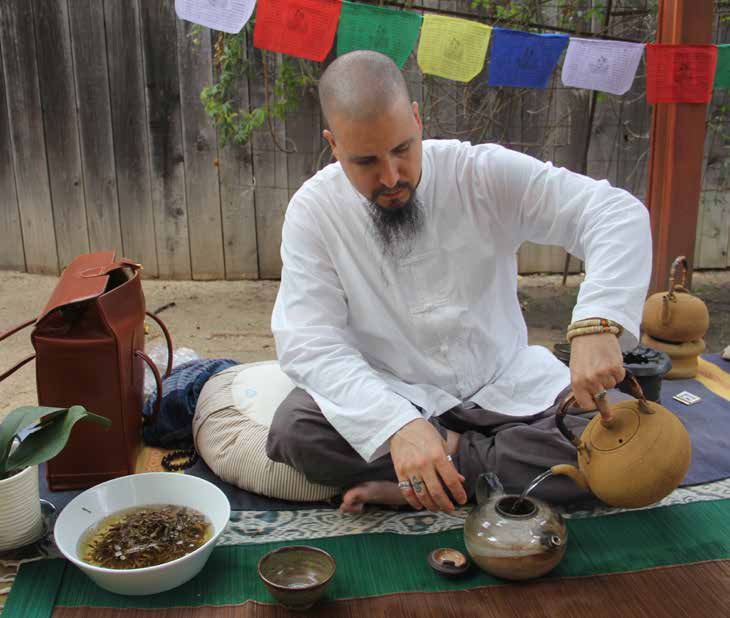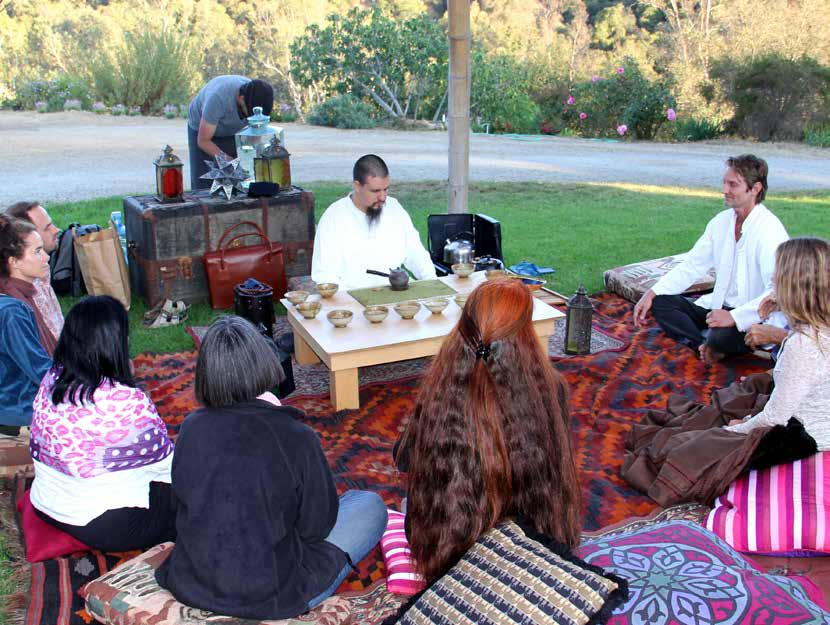
 |
|
To gong fu or not to gong fu? To shower, or not to shower... the teapot? Which cups to use? Why even use a pitcher? And which heat source, for which water, in which kettle, for which tea? At what time of day, with how many guests, in which season, and of major concern: which pants should I wear? And does any of it really matter?

These questions regarding tea could go on forever, and the permutations of scenarios are ever-changing. The main reason I ask myself is because at some level they are important, and that level need not be restricted to being a full-time student of the Leaf while living at a tea center. (Everyone has to wear pants.) You may be asking some or all these questions too. Moreover, instead of just asking them, we can actually conduct experiments pertaining to them. We can ask simple, relevant questions and then proceed to find out the answers for ourselves, within the framework of our own sensory experience. (Cotton or poly-blend?) In fact, we can go right back to the basics and lay a foundation for our life of tea based on experiential understanding of why it is we do what we do. This may sound a little extreme, but if we take a simple look at how people are brewing tea today, you may just find there is a little blind faith and a lack of understanding behind what they are doing and why they are doing it. In any case, going back to the basics as it pertains to tea means going back to water: addressing the very medium through which Tea transmits Her wisdom to us, the very medium through which Tea and Human commune. We can ask ourselves, what really is suitable water for tea? Or simply, what makes good water?
It is true: we live in the age of information. However, we must not let not such simple questions be subject to a bunch of words thrown together on a page in some book or an app in some google. Instead, let the faculties of our own senses be an inner book of understanding, an inner google if you will, written by the hand of experience. Let this article not be the information you are looking for, but a signpost pointing towards your ability to cultivate experiential understanding. Of course, there are records describing the qualities of water as they relate to tea, but that's like reading that the nature of the Self is already enlightened. As Ram Das has said, a few weeks spent with your parents will quickly reveal the sharp difference between an intellectual understanding of what is true and an embodiment of Truth... "I'm an enlightened adult mom, quit calling me 'sweetie'! And yes, I want the poly-blend." So too in the world of mathematics, the most elementary principles must be addressed with rigor in order Article by Shane Marrs that they form an axiomatic foundation upon which the rest of math (and science) as we know it may be built. Furthermore, all subsequent levels of development can then safely draw upon the truth inherent in the level below in order to address more complex systems. (Finally, my degree in mathematics has been put to use in tea!) What I'm alluding to here is gaining an understanding through experience, not via facts from a book. This goes for any aspect of life, but as Chajin (tea people) we can focus on tea. Of great value then, are the Gong Fu Tea-Brewing Tips featured in each edition of the Global Tea Hut newsletter. There are now twenty great experiments available from the time GTH started to where we find ourselves now. I stress the importance of earnestly conducting these experiments because, as a full-time student doing that myself, I am finally starting to realize the benefits of doing so. As a result, your connection to the Way of Tea may deepen, may develop more meaning, or may simply clear up some issues you've always looked past. Your understanding will be raw and real, which allows you to share that knowledge from your heart, not your head. Your level of sensitivity to subtle details will increase, be it towards the subtle qualities of water, or possibly even the sensitivity to detect whether your tea is clean or not. This can help you make more skillful judgments when sampling tea, not to mention that it will help you refine your own tea brewing skills. They are gong fu tea-brewing tips after all, which means tips on brewing tea with skill. In general, you will simply understand through your own experience what you are doing and why you are doing it. That's not common! Look around and see (without judgment) how people are preparing and serving tea. Why are they using a pitcher? What is the role of the strainer? Why use a gaiwan? (And what's with those pants?) See where there is blind faith, where something is being done out of sheer convenience or just lack of understanding. I'm not saying there is anything wrong with the above mentioned observations, but they're questions worth asking because more often than not, the answer is: "Well, I'm not sure," or, "Because I like these pants." Nor am I saying everything we do should be presupposed by experiential truth before doing it. Sometimes, you just want to strain tea from your gaiwan through a filter into a pitcher and then into your favorite mug. There's no right or wrong way to drink tea, but if you want a little more meaning infused into your life of tea, or if you're ever-more curious what brewing tea with skill is all about, then again I point towards the gong fu experiments and stress their relevance.
Furthermore, upon performing these experiments, there is this beautiful, dual understanding that comes as a result, which accounts for an external and internal reason behind what we are doing. For many of the reasons we do what we do at the tea table, there is an outer aspect and an inner aspect, a practical reason and a spiritual reason, a Yin and a Yang.

Let me give one example. In one experiment, we tested the effect of pitchers on our tea. After all, why use a fairness-pitcher? Most people wouldn't even ask or have any idea why you would be asking. It's become an everyday tea accoutrement, used without question, though some have a practical reason for using a pitcher. For this experiment, we compared tea poured straight from the teapot into a cup to tea poured from the teapot into a pitcher and then into a cup. The results were pretty obvious as far as temperature, Qi and smoothness were concerned. Let's consider the external reason for using a pitcher: You gain a little convenience, a little consistency, and the ability to serve more people at one time, while sacrificing a little temperature, Qi, and smoothness. It seems a fair trade-off - the liquor is the same for everyone (hence "fairness pitcher") and it makes the tea easier to dole out. Now let's consider the inner reason behind pouring straight from the teapot into the cups: Note that, when using a pitcher there is no need to return the cups to a central location because the tea in the pitcher is uniformly infused and can be conveniently poured wherever the cups are. Without a pitcher, the cups need to be returned to the brewer who must gather them in order. On must skillfully pour (gong fu) the tea to achieve a balanced infusion in each cup (because the tea at first pour is less infused than the tea which pours out last) rather than relying on the convenience of the pitcher. This flow of returning, pouring into and serving the cups symbolizes the breath of the tea session - the very life of the session itself. It keeps the ceremony grounded, focused, centered, and maintains connection between host and guest. Like those gathered around the table, the cups are together and one, then apart and distinct - breathing in unison. You can witness for yourself how serving from a pitcher lends itself to dispersed conversations and loss of focus as opposed to a session served where cups are returned and served in ebb and flow. Knowing this, would you trade the convenience of a pitcher for the very breath of a tea gathering? Coming to conclusions and understanding like this is the real power achieved through these experiments.
This is not to discount the pitcher completely; there is a place for the pitcher and it's not just in serving milk. There is space at the tea table for the appropriate use of decanting into a pitcher. Now all of this may seem a little ironic in that I've stressed the importance of garnering your own understanding through your own experience, and here I am expounding the results of my experiment to you in intellectual detail. What I wanted to highlight, though, was the external/internal understanding that often exists in these experiments. Therefore, I especially suggest you try this experiment to confirm or disconfirm for yourself what I've written.

As a westerner, hailing from a scientific upbringing and education, I faced (and to some degree still face) the challenge of being objective when approaching these experiments. I feel as though, as soon as someone suggests to me what it is I should be looking for in these experiments, then that's exactly what I'm going to find, which flies in the face of the scientific method. For example, my teacher or peers might suggest what I should experience in a particular gong fu experiment, and I can't help but wonder if I would have experienced that had they not said anything. What's really happening is that my very thought process (of basically not trusting myself or my teacher/peers) is what gets in the way of what there is to really be experienced. The desire for a blindfolded, objective approach is hollow and without faith. I should know better that these people aren't trying to trick me or misguide me. Some of these experiments require a great level of sensitivity and years and years of drinking tea to really know what to look for, and a little guidance from their vantage point is often needed by the novice. And so I say, heed the advice given in the instructions for each gong fu experiment. Have faith in your own personal experience but look for some guidance when treading uncharted tea territory from those who have steeped, brewed, and boiled before you. Email us some questions or look to our forum for more information.
Most important is to enjoy yourself. The experiments can be carried out seriously and with rigor. You can even document the results of your experiments in great detail, but the moment they become burdensome or trying, put everything down and have some bowl tea. Return to where it all started. Fill your belly with laughter, wear some comfy pants, and know Tea is just leaves and water.

Attuned to the seasons, we rest near home, Alignment with Nature, everywhere a throne. From winter to spring, so our tea, From Shou unto Sheng and Red unto Green. Renewal of life and freshness astir, Reborn in us, a welcome winter cure. With spring the cold is finally unclung, Gently she cools us with young Sheng. But not too hastily; the seasons are slow to change, Rainy May Red Tea is well within range. Shou in the night on a cold winter's eve, A calming delight, and one to achieve. Listen to Nature for the seasonal song, Remember to open your greener Oolong. Steadfastly we drink and share in spring's bliss, As the days increase until summer solstice. Hotter the sun, we enjoy whisked tea, Lest we forget Oriental Beauty. But he who brews Shou in the heat of June, Too hot you shall be, you drinketh too soon! Uplifting and fresh in the early morning hour, Arise with the sun, fragrant tea fragrant flower. Which tea wants to drink us? Make no plan, As the man seeks the leaf, the leaf seeks the man. On into Autumn, leaves dress the ground, Mulching the soil, red, yellow and brown. A beautiful time for all types of tea, By the fading migratory bird melody. Charcoal-heated water penetrates tea leaves, Chill nearing our bones, sharp seasonal breeze. Each passing day with signs to demark, Tea's time to change from light to dark. Amber coals in a brazier like a hearth in a home, Heating our water and warming our soul. Winter upon us, blankets of snow, Shou. Winter is old, ending, and cold, Aging your tea is warming I'm told. Up to the test and thirty years bold, Black Tea leaves out of retreat unfold. First blades of grass at winter's arrest, Seasons connected, so too host and guest Still too early for your favorite Green, Patience in tea is advice to heed. That they with the seasons may wax and wane, And abound with bearing most humble and fain. Attuned to the seasons we rest near home, Alignment with Nature, everywhere a throne. Silently spoken, Camellia's tune Through words communicate, through silence commune. Tea is a medicine, the balancing jewel, Drink tea by the seasons - renewal!
